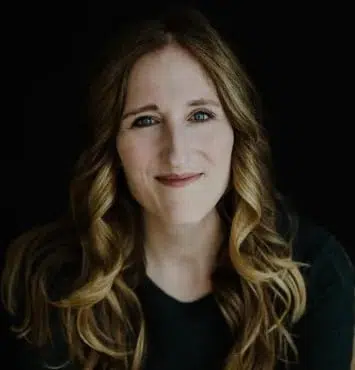Veterans have been hit hard by the opioid crisis in the U.S. due to high rates of chronic stress, trauma and other health concerns.
Opioid misuse has been a growing public health crisis across the U.S. in recent decades in civilian and military populations. Veterans are at a notably higher risk of experiencing opioid abuse and opioid use disorder. In fact, they’re twice as likely to die from an opioid overdose than the general population, and the overdose death rate among veterans increased by over 50% from 2010–2019.
Opioid Misuse in Veterans: Overview
The 2020 National Survey on Drug Use and Health found that in veterans 26 years and older, 485,000 people misused opioids in the past year, and 88,000 people had an opioid use disorder. Alcohol is commonly used across the military, which puts service members and veterans at a higher risk of developing opioid misuse. SAMHSA reported that veterans 18 years and older who didn’t drink alcohol in the past month had lower rates of marijuana use and opioid misuse in the previous year when compared to those who drank in the past month but didn’t have any heavy alcohol use.
Risk Factors for Opioid Addiction & Overdose in Veterans
The causes of opioid addiction among veterans are complex. Being exposed to trauma, pain and chronic or acute stress during active service puts veterans at a greater risk of developing an opioid use disorder. These experiences also intersect with risk factors, such as:
- Childhood trauma
- Poverty
- Family history of substance use
PTSD & Other Co-Occurring Mental Health Disorders
Mental health conditions such as post-traumatic stress disorder, anxiety and conduct disorders occur at higher rates among veterans than non-veterans. The 2020 National Survey on Drug Use and Health reported that veterans with mental health conditions have much higher rates of substance use, including opioid misuse. Often veterans will turn to opioids and other substances to cope with distressing mental health symptoms. Unfortunately, these drugs worsen symptoms and increase the person’s risk of suicide.
This Season, Give Yourself the Gift of a Fresh Start.
Whether you are struggling with addiction, mental health or both, our expert team is here to guide you every step of the way. Don’t wait— reach out today to take the first step toward taking control of your life.
Chronic Pain
Veterans experience high rates of chronic pain, with 48% of Operation Enduring Freedom, Operation Iraqi Freedom and Operation New Dawn veterans presenting at the VA for services diagnosed with a chronic pain condition within one year. Many of these people were, in turn, prescribed opioids as treatment because they were heavily prescribed for decades. Pharmaceutical companies made this overprescribing worse by heavily advertising their opioids as non-habit forming for years before the general public and military realized the severity of the opioid crisis.
Military Sexual Trauma
Veterans with a history of military sexual trauma were 50% more likely to develop an opioid use disorder than those without this type of trauma. Unfortunately, sexual violence and harassment occur at high rates across the military but go underreported due to stigma, lack of support and fear of retaliation. Similar to mental health conditions, veterans may turn to opioids to cope with the trauma they’ve endured.
Lack of Support
Social isolation is a concern for many veterans. Adjusting to civilian life can be challenging for many veterans, especially when experiencing other conditions related to mental health, trauma, pain and homelessness. Feeling alone and lacking support to deal with ongoing stress and pain puts veterans at a higher risk for opioid use and overdose.
Homelessness
Homelessness can increase anyone’s risk of becoming addicted to opioids. Houseless folks face stigma, isolation and lack of support, safety and healthcare. Unfortunately, veterans are disproportionately affected by homelessness, accounting for 15% of homeless people yet representing only 9% of the population. Studies have found that opioid use disorders are 12 times higher among veterans experiencing homelessness compared to housed veterans, which also increases their risk of dying by overdose.
Barriers to Health Care
Difficulties navigating and accessing VA benefits and the stigma surrounding seeking help for mental health concerns put veterans at an increased risk of opioid misuse and overdose. Lack of quality health care means a doctor is less likely to notice signs of opioid use and provide treatment options.
Signs of Opioid Addiction in Veterans
People with opioid addiction may present with their own individualized cluster of common symptoms. Signs of OUD include:
- Physical dependence on opioids
- Increased use or tolerance
- Cravings or withdrawal symptoms
- Unusual behavior
- Changes in mood
- Preoccupation with obtaining opioids
- Not taking opioids as prescribed or using another person’s prescription
- Lack of hygiene
- Isolating from loved ones
- Stealing
- Sleep disruptions or changes
- Weight loss
- Fatigue
- Regular flu-like symptoms
Treatment & Support Options for Veterans With Opioid Use Disorder
There are many different forms of support for those with opioid use disorder. If the person has co-occurring mental health conditions and OUD, it’s important to receive treatment that addresses both issues at the same time.
Successful treatment typically includes ongoing support, such as:
- Medication
- Residential services
- Therapy
- Support groups
Therapy & Psychiatric Medication
Cognitive behavioral therapy (CBT) is a common form of therapy used to treat OUD and co-occurring mental health conditions. Medications may be used to treat comorbid conditions, such as:
- Anxiety
- Depression
- Bipolar
Medication-assisted treatment (MAT) involves opioid-dependence medications, such as:
- Buprenorphine
- Methadone
- Naltrexone
These three medications are FDA-approved and can help ease cravings, reduce withdrawal symptoms and block the euphoric effects of an opioid high.
VA Naloxone Access
Naloxone or Narcan is a medication used to reverse or decrease the effects of opioids rapidly. This can save someone’s life when they have overdosed. In 2014, the VA began implementing Naloxone distribution programs across the country. Their program made it easier for veterans to access medication and provided safety education.
Support Groups
Recovery groups such as Narcotics Anonymous and veteran programs can provide needed support for veterans going through recovery. Isolation can make substance use and mental health conditions worse. Meeting with peers can help veterans not feel so alone and reduce the stigma surrounding reaching out for help.
Friends & Family
Loved ones can play an integral role in someone’s recovery. They may set up an intervention, go to family therapy or provide ongoing support throughout recovery. Opening up to trusted friends, family or other veterans can provide life-saving support and even be a motivator for the person to seek treatment.
Drug Rehab
Drug rehab services may be a good choice for those who need more structured and comprehensive support. There are multiple levels of care depending on the person’s needs, addiction severity, support system and other health concerns. When you reach out to a treatment center, you can discuss with staff which level of care is best for you. These levels of care include:
- Inpatient services
- Partial hospitalization (PHP)
- Intensive outpatient (IOP)
- Outpatient programming
Help for Veterans Struggling With Opioid Addiction
If you or a loved one are looking for veteran-specific help for opioid addictions, we can help. The Recovery Village Columbus offers comprehensive trauma-informed substance use treatment. As a proud partner of the VA Community Network, we provide a veteran-specific treatment track and work with VA benefits. We also offer EMDR and canine therapy. Contact a Recovery Advocate today. They’ll guide you through the admissions process and help you navigate your VA benefits or insurance.









